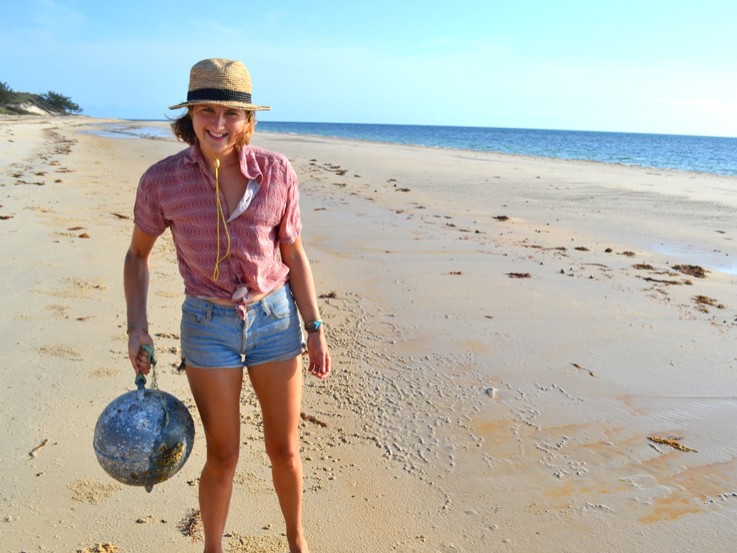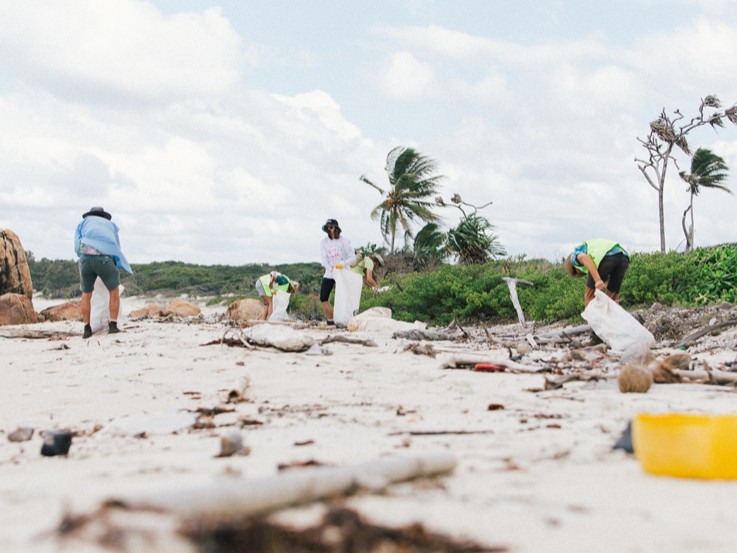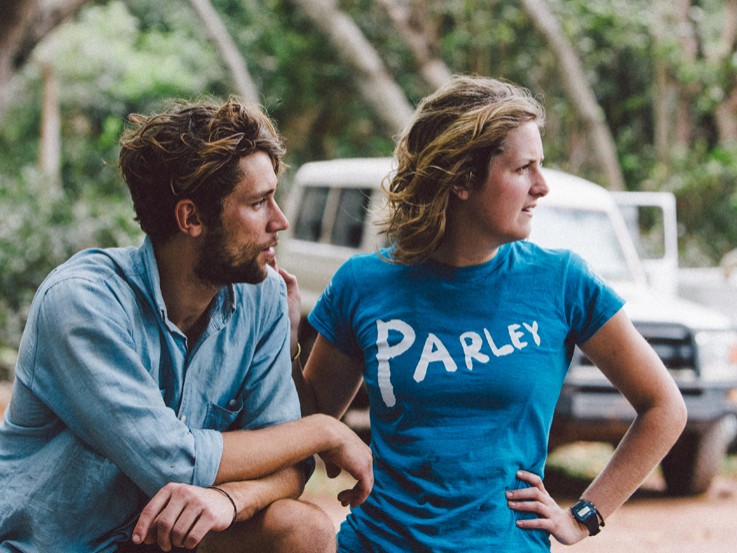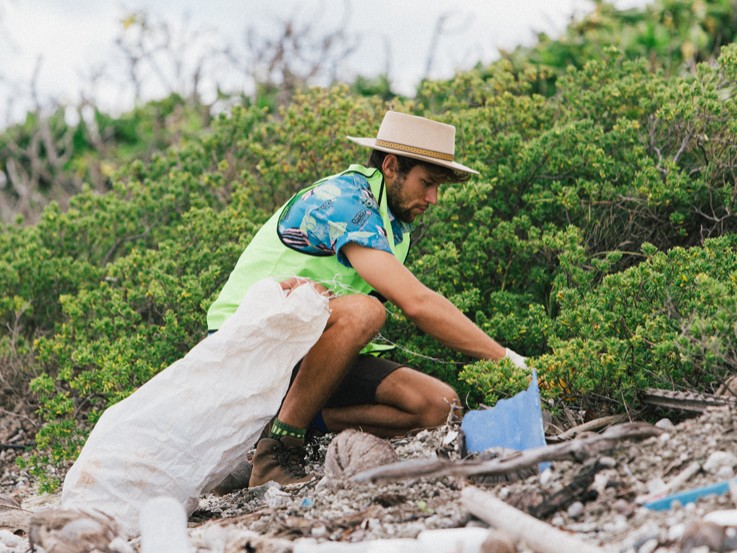Natalie Woods - Clean Coast Collective
We all want healthy oceans and clean salty playgrounds, but a lot of us have no idea about how much our daily consume habits and behaviour affect our oceans and beaches.
We talk to Natalie Woods, the co-founder of Clean Coast Collective, an organisation aiming to clean and protect the oceans and beaches of Australia.
Tell us a bit about yourself.
I'm 27 and am lucky enough to live in the beautifully lush hinterland of the Northern Rivers region of NSW. Two years ago, my partner Dan and I took the leap to set up a non-profit organisation called Clean Coast Collective – it's been a pretty insane rollercoaster ride ever since!
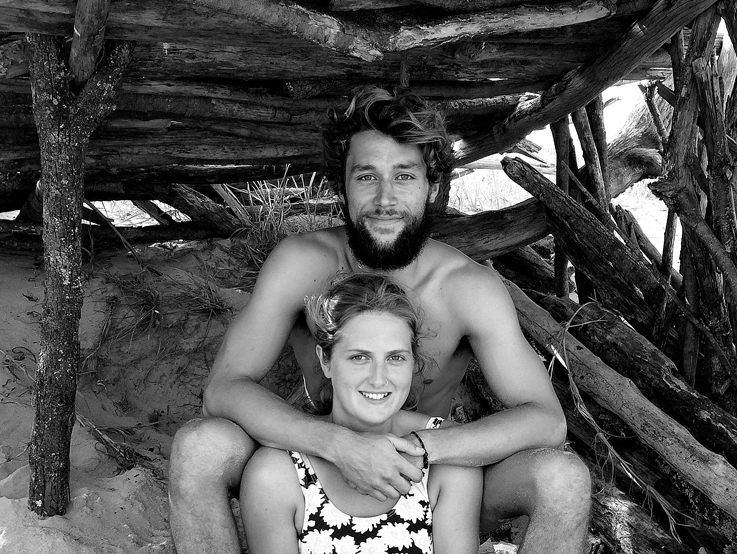
What is your education?
After high school, I studied a combined Bachelor degree of Arts (Development Studies) and Asian Studies at the Australian National University. I was lucky enough to be able to study parts of my degree overseas, spending a month in Indonesia and a full year in Beijing, China. Living in Beijing really opened my eyes to the environmental destruction that the human race was creating and I completed a research project on air pollution in the city. We're incredibly lucky in Australia to be able to breathe fresh air and be surrounded by national parks – much of the environmental damage occurring in our country isn't visible to us on a daily basis.
What is it that you love about the ocean?
The ocean just has such a strong sense of nostalgia for me. It reminds me of long summer holidays spent at my family's coast house, of learning to surf with my brothers and exploring rockpools. I think most Australians have similar memories from their childhood.
There's something about the ocean that just makes it so calming to be near – an afternoon sea breeze, the constant roar of the waves – I think it reminds us that we're just one tiny part of this planet. Any troubles, concerns or problems seem so insignificant after a quick splash in the sea.
What is your current job and how did you start working there?
After leaving my job in Sydney, I'm currently focussing on running Clean Coast Collective full-time. At CCC, we run beach clean up expeditions and campaigns to get people thinking about the waste they create daily and its impact on our oceans. Last year we took a group of ten young surfers on a two week journey to remote Australia where they removed over 3 tonnes of rubbish off just one beach. We're currently developing a range of products which will fund multiple clean up expeditions each year to different remote locations around the country. Keep an eye out for the product launch in the coming months!
What inspired you to do the job you do?
We started CCC after learning about the amount of plastic pollution and debris in the ocean and the impact it was having on marine wildlife – as surfers, we were shocked that none of the surfers around us were talking about this issue. After running a few small local clean ups, we took off on a six month journey around the entire mainland coast of Australia running beach clean ups and speaking with locals along the way. The trip blew us away and made us fall even deeper in love with the Australian coastline and fuelled our desire to work harder to protect it. Now that we're based in the Northern Rivers region in NSW, we're constantly inspired by the coastline and amazing landscapes around us.
Do you have any previous experience in the surf / environmental industry?
I've always been drawn towards working in the environment sector. During university I completed two internships in Beijing – one with The Jane Goodall Institute and another with a China-based organisation called Thirst. These experiences taught me the value of education in environmental protection and the passion of children to protect their planet. Most recently I worked in Sydney at WWF-Australia on their climate change campaigns, particularly on the worldwide event of Earth Hour.
What does your daily schedule look like working for an organisation like Clean Coast Collective?
As a small organisation, I am lucky (and maybe a bit unlucky) to be able to work on all aspects of the business. Some days I'll be tied to the computer answering emails, updating the website, designing graphic material or planning events. Other days I'll be on the road meeting up with other groups and businesses in the coastal protection space. This past month we've been running a campaign in Byron Shire to encourage local residents to sign up to Plastic Free July, so I've been spending a lot of times at the local farmers' markets chatting to people. I love that everyday is different and that because there's just the two of us, we can create our own schedule and jump on new opportunities and projects that come our way.
What are the biggest barriers that Clean Coast Collective has encountered on its way?
CCC has always been incredibly supported by our peers, our community and complete strangers. We've had so many opportunities come our way that have helped CCC grow into what it is today. However, like any small business or start-up, a reliable source of revenue has always been a challenge. We never wanted to have to ask people for donations to keep CCC running, if people give us money then we want them to be receiving something in return. We also find that government funding restricts our ability to plan ahead or run projects that don't necessarily align with the funding agenda. For this reason, we're developing a full line of lifestyle products to provide us with a predictable and reliable source of income. The sales of these products will fund all future expeditions, projects and campaigns, along with covering the day-to-day business operation expenses.
Do you think the new generations are more educated about the importance of coastal protection?
Definitely! I'm constantly hearing about new education programs being run in Australian schools on marine pollution. The idea of fish and turtles mistaking plastic for food and injuring themselves, really strikes a chord with them and they want to do something to help.
The problem then lies in educating older generations and making people realise that it's not just about 'not littering', it's about reducing the amount of waste you use in the first place. Plastics have only been around for the last 50 odd years, yet every single piece of plastic ever manufactured still exists today. Individuals and businesses need to start consider the whole life cycle of the packaging they're either consuming or producing – is it biodegradable? How long will it take to breakdown? Is it just going to sit in landfill for hundreds of years? There's been a big shift in consumer consciousness about this, so I think slowly mainstream behaviour will start to change for the better.
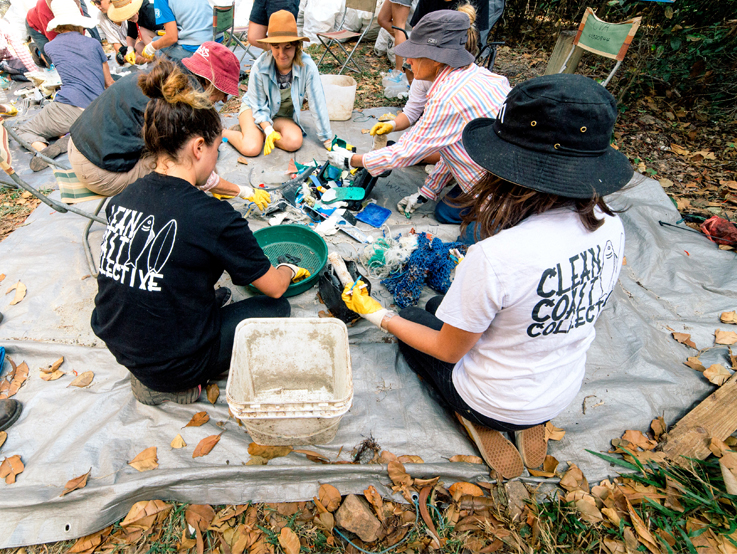
Any big projects/plans for “Clean Coast Collective” coming soon?
After Plastic Free July, we'll be taking some downtime to focus on getting ready to launch our new products and our next expeditions in time for summer. There will be lots of events over summer and the chance to apply to join the next Trash Tribe expeditions, so keep an eye out!
Where can we find you online?
| Website | www.cleancoastcollective.org |
| instagram.com/cleancoastcollective/ | |
| facebook.com/cleancoastcollective/ |
Posted by: Marta Gallardo, on July 10, 2016
Categories: Interviews
Latest Posts
Craig Sims - White Horses & Surfing Life Publisher
Luke Kennedy - Editor of Tracks Magazine
Simon ‘Swilly’ Williams - Surf Photographer
Jarra Campbell - the Bondi Alchemist
Greg Gordon - Owner of CR Surf
Shayne Nienaber - Surf Photographer
Alexa Hohenberg - Owner of Still Stoked
Christine Deveney - TapaReef Owner & Creator
Russell Ord - Surf Photographer
Richard Kotch - Surf Photographer
Categories
Interviews
Articles
Videos
Press Releases
Quiz
Archive
December 2018
November 2018
October 2018
September 2018
August 2018
July 2018
June 2018
May 2018
April 2018
March 2018
February 2018
January 2018
November 2017
January 2017
December 2016
November 2016
October 2016
September 2016
August 2016
July 2016
June 2016
May 2016
April 2016
March 2016
February 2016
January 2016
December 2015
November 2015
October 2015
September 2015
August 2015
July 2015
June 2015
May 2015
April 2015
March 2015
February 2015
January 2015
December 2014
November 2014
October 2014
September 2014
August 2014
July 2014
June 2014
May 2014
April 2014
March 2014
February 2014
January 2014
December 2013
November 2013
October 2013
September 2013
August 2013
July 2013
June 2013
May 2013
April 2013
March 2013

